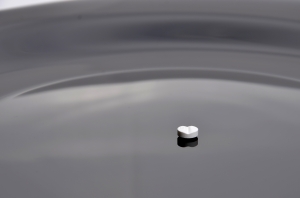Using Social Media to Feel Better
 So you’ve got a sore throat. A backache. A weird-looking toenail. What do you do?
So you’ve got a sore throat. A backache. A weird-looking toenail. What do you do?
Until a few years ago, the answer was obvious: you need a doctor to tell you what’s gone wrong and how to treat it.
Now, though, more and more patients are taking advantage of medical information online and via social media to find remedies for their illnesses.
The Social Diagnosis
If you wake up one day with an aching neck and tweet out something like, “My neck is killing me. No idea why it’s sore. What should I do?” you know you’re likely to get a mixed bag of replies.
Here are just a few possibilities:
· “Use an ice pack.”
· “Use a heat pack.”
· “Stretch your muscles.”
· “Avoid moving the sore muscles.”
· “u bitten by vampires LOL”
OK, so maybe Twitter isn’t the best place to get help. Let’s try Facebook instead.
There must be a page about neck pain; type in in the search bar… oh. There are hundreds of them. Maybe even thousands. And they all say something different.Finding the Best Health Information Online
The big danger in searching the internet and social media for your health care information is that you’ll get given advice that isn’t merely ineffective, but actually damages your health.
If all you have is a cold and you’re looking for a good chicken soup recipe, go right ahead. But if you’re in agony, if you’re exhausted, if your symptoms have gone on for days already, then you need a specialist who’s qualified to be sure the treatment won’t make things worse instead of better.
So where can you get reliable guidance online about what ails you? Well, there are a few websites that offer official healthcare information, like the Federal Government’s Healthfinder site. Those are the best places to read up on your symptoms, but they can’t confirm a diagnosis – that’s still a job for a professional.
You’ll also find quite a few MDs on social media, some of whom are happy to answer general health questions from their followers and fans. But what about medical institutions rather than individual doctors?
How Hospitals and Clinics Use Social Media
There are a ton of hospitals running Twitter accounts, Facebook pages and even Pinterest boards, but you’ll notice one thing is typically absent from those pages: personalized medical advice. The simple fact is that most people think it unprofessional for a doctor to give you a treatment recommendation without first discussing your health problems with you in detail.
Hospitals and clinics use social media more as a way to encourage patients to attend blood bank drives and fundraising events, to share good news, or to publish general health warnings and basic healthcare information without personalization.
Asking them to tell you today’s clinic hours should be fine; asking whether you have a sprain or a broken bone is expecting too much.
The internet is a wonder of the modern world, but until social media lets a doctor examine you just as if you were in the clinic, there will be some things you just can’t cure by going online.
About the Author: Sophie Lizard is an expert freelance blogger on career, science and lifestyle topics includinghealthcare recruiting.
Image Credit: health.
Posted in Social Networking. Tags: healthy, medical practice and social media
No Replies
Feel free to leave a reply using the form below!

